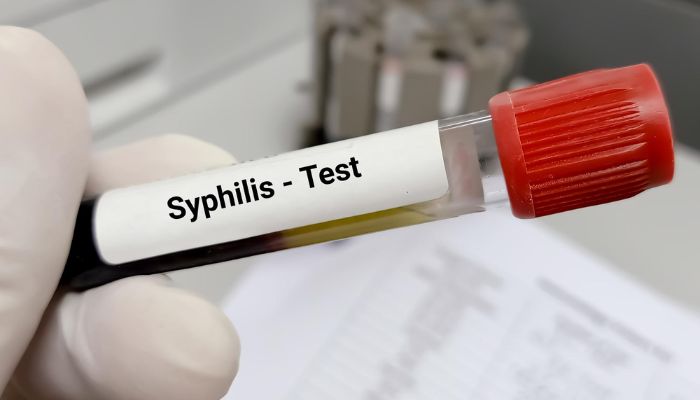
Syphilis, a sexually transmitted infection with a storied history, remains a significant public health challenge globally. Characterized by its varied and often subtle symptoms, it can easily go undetected and untreated, leading to severe health complications. The development of the Rapid Syphilis Test has been a pivotal advancement in the battle against this elusive disease. This innovative diagnostic tool offers a quick and reliable method for detecting syphilis, significantly improving the efficiency of diagnosis and treatment.
Its introduction into healthcare systems marks a crucial step forward in controlling the spread of syphilis, especially in settings where access to traditional laboratory testing is limited. This blog aims to explore the rapid syphilis test in Singapore, shedding light on its technology, benefits, and the impact it has on public health strategies. By understanding this significant medical advancement, healthcare providers and patients alike can better navigate the challenges posed by syphilis and contribute to a broader effort in managing this persistent health concern.
What is the Rapid Syphilis Test?
The Rapid Syphilis Test is a groundbreaking diagnostic tool designed to detect the presence of Treponema pallidum, the bacterium responsible for syphilis. Unlike conventional testing methods that require laboratory facilities and extended waiting periods for results, this test stands out for its speed and reliability. Typically, it involves a simple procedure where a small blood sample, obtained via a finger prick, is analyzed using a portable testing device. The results are available in as little as 15 to 20 minutes, a stark contrast to the days or even weeks required for traditional testing.
The Science Behind the Test
At the heart of the Rapid Syphilis Test lies sophisticated, yet remarkably user-friendly technology. It employs immunochromatographic techniques, which detect specific antibodies produced by the body in response to a syphilis infection. This method is a significant leap from the older, more cumbersome techniques like the Venereal Disease Research Laboratory (VDRL) test, which necessitates skilled personnel and elaborate laboratory equipment.
Moreover, the rapid test technology is not only about speed. It also ensures a high degree of accuracy, making it a reliable tool in the early detection of syphilis. This aspect is crucial, given that early diagnosis and treatment can prevent the severe, long-term health complications associated with the disease.
Read Also – Exploring Male ED Clinics For Enhanced Well-Being
Benefits of Rapid Syphilis Testing
The benefits of Rapid Syphilis Testing are manifold. Firstly, the promptness of results is a game-changer. It allows for immediate counseling and treatment, thereby reducing the risk of disease transmission. This immediacy is particularly beneficial in resource-limited settings or in situations where follow-up visits might be challenging.
Furthermore, the simplicity and accessibility of the test make it a valuable tool in various healthcare settings, from urban clinics to remote rural areas. It requires minimal training to administer, thus expanding its reach to a broader range of healthcare providers.
Additionally, the rapid test plays a pivotal role in improving patient outcomes. By facilitating early detection and treatment, significantly lowers the risk of serious health issues like neurological and cardiovascular complications, which can arise from untreated syphilis. This aspect is especially critical for pregnant women, as timely treatment can prevent congenital syphilis, a severe infection that can lead to stillbirth or severe disabilities in newborns.
Accuracy and Reliability
The accuracy and reliability of the Rapid Syphilis Test are paramount, especially when it comes to a disease that can have far-reaching consequences. Statistically, these tests have shown high sensitivity and specificity, meaning they are effective in correctly identifying those with and without the disease. However, it’s important to note that no test is infallible. Factors such as the stage of the infection and the individual’s immune response can influence the test’s accuracy. Therefore, in some cases, confirmatory testing using more traditional methods may still be necessary.
Implementation in Healthcare Settings
The implementation of the Rapid Syphilis Test in Singapore healthcare settings marks a significant advancement in public health strategies. Its integration into routine sexual health screenings and antenatal care programs has been a game-changer. In many regions, particularly those with limited access to comprehensive laboratory services, this test has become a cornerstone in syphilis control and prevention efforts. Moreover, its ease of use allows for a broader range of healthcare professionals, including those in community and outreach settings, to conduct the test, thereby expanding its reach and impact.
Challenges and Limitations
Despite its numerous advantages, the Rapid Syphilis Test is not without its challenges and limitations. One of the primary concerns is the potential for false positives and negatives. False positives can lead to unnecessary anxiety and treatment, while false negatives may result in missed diagnoses and continued disease transmission. Additionally, the test’s performance can be affected by factors such as improper storage of test kits or incorrect administration of the test. These challenges underscore the need for proper training and quality control measures in the use of these tests.
In conclusion, the Rapid Syphilis Test represents a significant leap forward in the management of a historically challenging disease. Its speed, ease of use, and reliability make it an invaluable tool in the global health arsenal. However, it is essential to recognize and address its limitations and to continue striving for advancements in this field. The future of rapid testing holds great promise, and its continued evolution will undoubtedly play a critical role in shaping public health strategies worldwide.
Read Also – The Importance Of Anonymous STI Testing: Why Choose Confidentiality?

